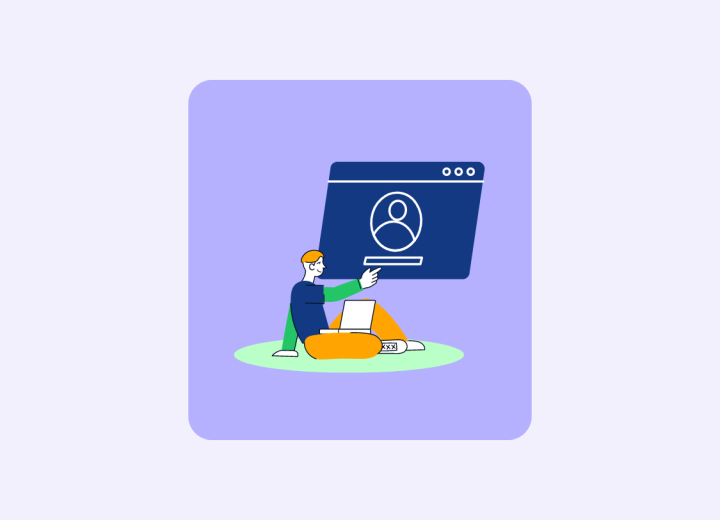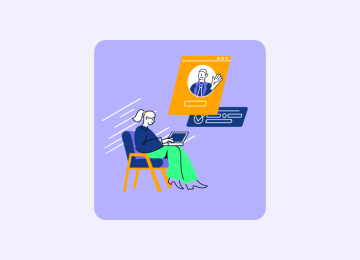Online-Interviews wurden bereits vor der Corona-Krise gerne von Unternehmen – vor allem bei der ersten Interviewrunde – eingesetzt, da sie sowohl für Arbeitgeber also auch Kandidat viele Vorteile schaffen. Damit du dein Interview erfolgreich meistern wirst, ist es nützlich, wenn du ein Verständnis für die Unterschiede und Facetten dieses Interview-Formats bekommst und weißt, womit du es zu tun hast. Hier ist deshalb eine Liste mit Vor- und Nachteilen von Online-Interviews im Bewerbungsprozess:
1. Du sparst Zeit und Kosten
Wenn du das Interview online absolvieren kannst, bedeutet das logischerweise auch, dass du nicht bei dem Unternehmen vor Ort sein musst. Dadurch sparst du (und die Firma) nicht nur Anfahrts- und gegebenenfalls Übernachtungskosten, sondern auch eine Menge Zeit. Diese kannst du effektiv für deine Vorbereitung auf das Interview nutzen!
2. Du kannst deine Kommunikationsfähigkeit unter Beweis stellen
Die Position als Berater erfordert von Kandidaten starke soziale Kompetenz, weshalb die Körpersprache und die Fähigkeit zur Kommunikation ganz oben auf der Liste der wünschenswertesten Eigenschaften stehen. Die gute Nachricht ist, dass sich beides durch ein einfaches Video-Interview fast genauso effektiv analysieren lässt wie bei einem persönlichen Interview. Das Unternehmen kann das Wesen jedes Kandidaten erfassen, die Art und Weise, wie du sprichst, dich kleidest und deine Ideen präsentierst, beurteilen, und entscheiden, ob du für das Unternehmen geeignet bist oder nicht.
3. Du spürst weniger Druck
Viele Kandidaten scheiden beim Consulting-Bewerbungsprozess frühzeitig aus, da der Druck während eines Case-Interviews für sie zu hoch ist, sie ihre Nervosität nicht unter Kontrolle haben und es dadurch nicht schaffen ihr wahres Können unter Beweis zu stellen. Online-Interviews ermöglichen es dir, entspannter zu sein, während du zu Hause bist, und alle Fragen in deinem eigenen Tempo zu beantworten. Außerdem erhältst du einen wertvollen Einblick in den Ablauf der Interviews und in die Wünsche der Berater, sodass du beim zweiten Mal weniger nervös bist, falls das Interview dann persönlich geführt wird.
1. Die Technik macht Probleme
Bei Online-Interviews ist Teil deines Erfolgs von der Technik und einer stabilen Internetverbindung abhängig. Schlechte Video-Qualität oder andere technische Schwierigkeiten können deine Chancen auf eine Einstellung verringern, wenn deine Präsentation nicht so effektiv war, wie sie hätte sein sollen/können. Die mit Bewerbungen überhäuften Beratungen werden leider zu jemandem greifen der sich besser präsentiert hat, auch wenn hier höchstwahrscheinlich nur Externalitäten der Grund waren.
2. Ihr könnt euch nicht persönlich kennenlernen
Ein weiterer Nachteil von Online-Interviews ist, dass du als Kandidat schlichtweg nicht die Möglichkeit hast, dein potenziell zukünftiges Büro und deine Kollegen im Unternehmen kennenzulernen. Schließlich spielt die Atmosphäre im Büro, sowie die Stimmung zwischen den Kollegen bei der Wahl des neuen Jobs eine sehr wichtige Rolle, gerade wenn du verschiedene Unternehmen zur Auswahl hast.
3. Es fühlt sich komisch an, in eine Kamera zu sprechen
Letztlich kann es sich für einige Kandidaten auch unbehaglich anfühlen vor einer Kamera zu sitzen. Während Interviewer die Möglichkeit haben den Umgang mit Stresssituationen zu beurteilen, besteht das Risiko, dass ein ansonsten perfekter Kandidat aus Gründen abgelehnt werden kann (in diesem Fall die Leichtigkeit vor der Kamera), die mit den tatsächlichen Anforderungen der Stelle nichts zu tun haben.








